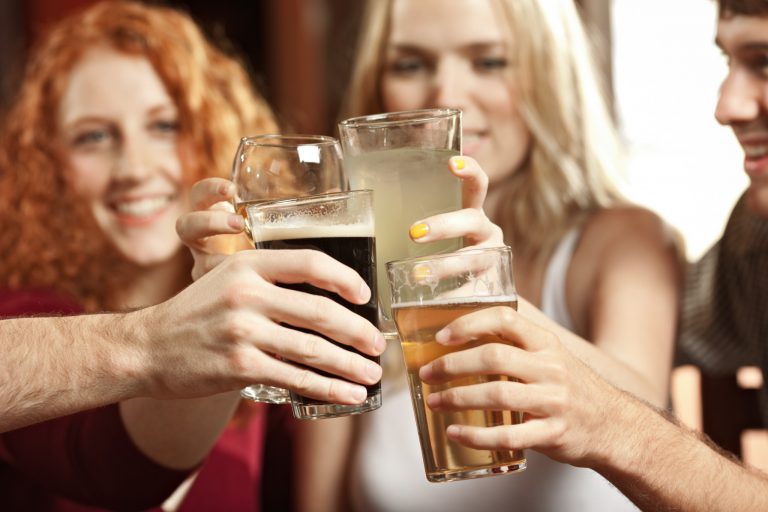
As sure as September is to roll around each year, bringing with it variations on Freshers’ Week at every university in the UK, so will tales of drunken student debauchery appear on the pages of newspapers across the nation. 2014 was no different, with the press particularly enjoying a story about a group of students in Leeds who tried to throw the ultimate house party – with each ending up with an ASBO for their troubles.
Another good yarn this year featured Loughborough, which was involved in a pilot scheme designed to tackle the problem of ‘pre-drinking’- the act of students loading up on cheap booze before heading off into the night- by breathalysing students who tried to enter pubs in the small market town in Leicestershire.
But are such stories really representative of UK student culture, both during Freshers’ Week and the rest of the year? At a time when institutions are increasing their efforts to attract international students to the UK, must they really be expected to conform to a heavy drinking culture simply to fit in and make friends?
The National Union of Students is determined that UK ‘lad culture’ is a stereotype which must be banished. In May, they launched a scheme with the Home Office and seven institutions to accredit universities that promote more of a ‘cafe culture’, through restrictions on alcohol pricing, tackling drinking initiations and asking students’ unions to promote non-alcohol themed events. NUS Vice-President Colum McGuire, speaking to the BBC at the time, said the project aimed to create “a social norm of responsible consumption by students” which will lead to “safer and more productive places to study and live”.
That has to be good news. But the truth is, students’ unions are already doing so much to promote alternatives to the booze-fuelled laddish culture which many believe is so prevalent within universities. As far back as 2007, it was reported that the revenue that students’ unions received through alcohol sales had halved within a decade. Instead, students were spending their money in juice bars and on gym memberships to keep healthy as they studied. Space previously used for club nights, like at Aston University, was being converted into alcohol-free social study space.
During Newcastle University Students’ Union’s extensive refurbishment a couple of years ago, care was given to ensure that club night space could moonlight during daytime hours to cater for meetings and sport events. Its 60-minute ‘Rush Hour’ drinkathon, where pints of lager cost just £1 at 5pm each weekday, was also removed to make way for a full menu of bistro-style pub food.
Freshers’ Week isn’t only an opportunity for new students to acquaint themselves with the best drinking holes their new home has to offer. Student unions make great efforts to ensure that a range of activities are available. Many, like Liverpool, have a special section on their website dedicated to non-alcohol events. Overt examples of sexism or exploitation still occur, but are thankfully often quickly exposed. Pressure from Leeds students last year forced the closure of a club night that promoted a ‘Freshers Violation’ party.
Of course, it would be foolish to ignore the fact that alcohol continues to be a large part of university life in the UK. Regardless of whether they enjoy a relaxing pint between lectures or a big night out every Friday, many students drink – sometimes to excess. But this needn’t build barriers between home and international students. Initiatives similar to that which is in place at the University of Sheffield are a step in the right direction – a post from a Chinese student that is open about the role of drinking in Britain – mainly positive and social (but also to confront some of that awful British shyness and awkwardness). But, as Fiona makes clear in her post, pubs are mostly lovely, inclusive spaces – and most students won’t bat an eyelid if you drink less or stick to soft drinks entirely.
Of course, those adapting to life in the UK are unlikely to escape without encountering some alcohol-centric problems- as this recent Guardian series on the experiences of international students indicates. Whether reflected by a Greek student who is perplexed by pre-drinking, or by a Chinese student who prefers meeting for coffee to clubbing, different aspects of British student life will appeal to different people.
Amid all such subjectivity, one thing is clear. While the UK student’s laddish, booze-fuelled image may be one which creates the best copy for newspapers (and what about a house full of daft lads with ASBOs? Great story!), it is fast becoming an inaccurate caricature of Britain’s varied, highly esteemed higher education system.







